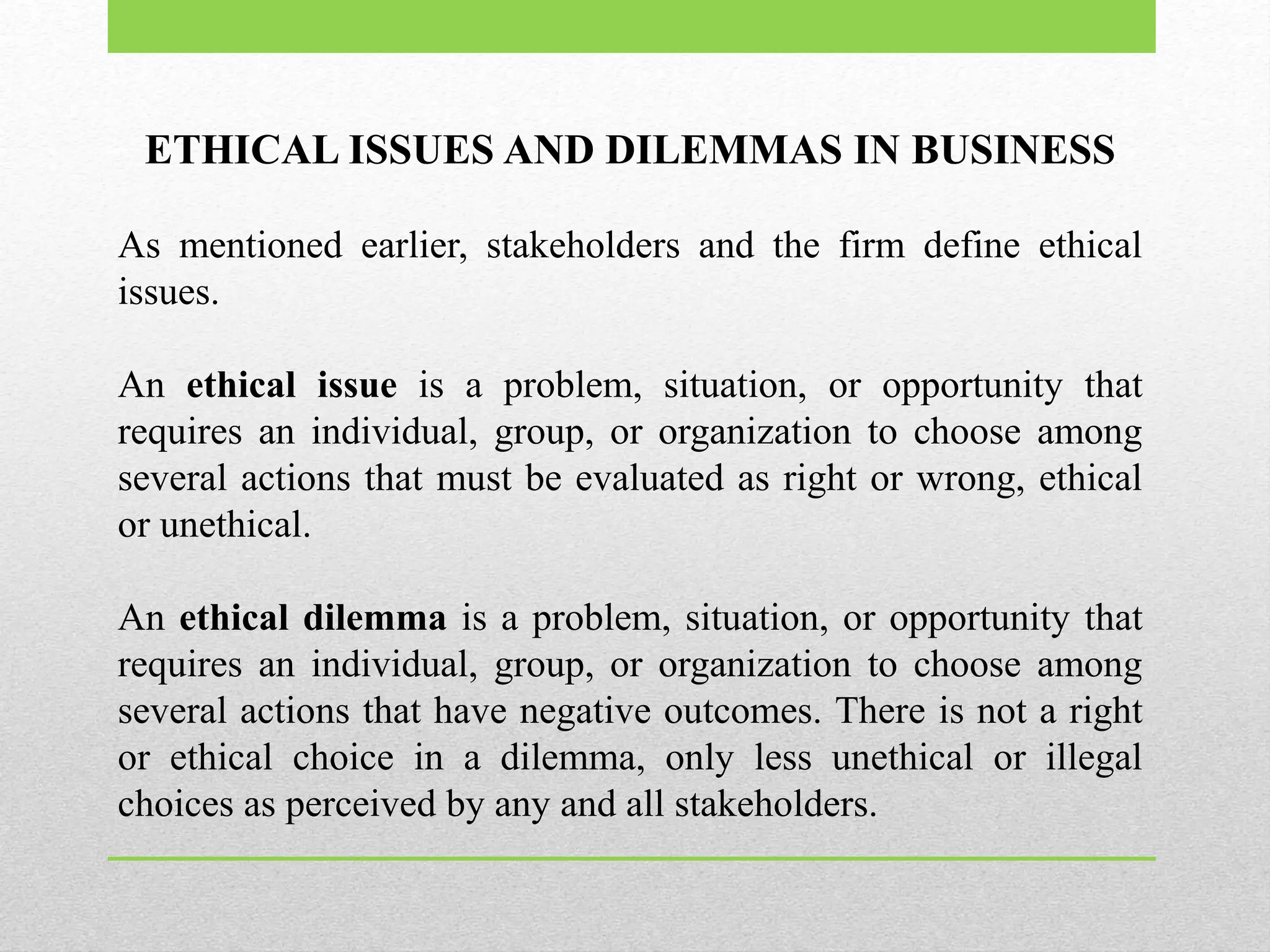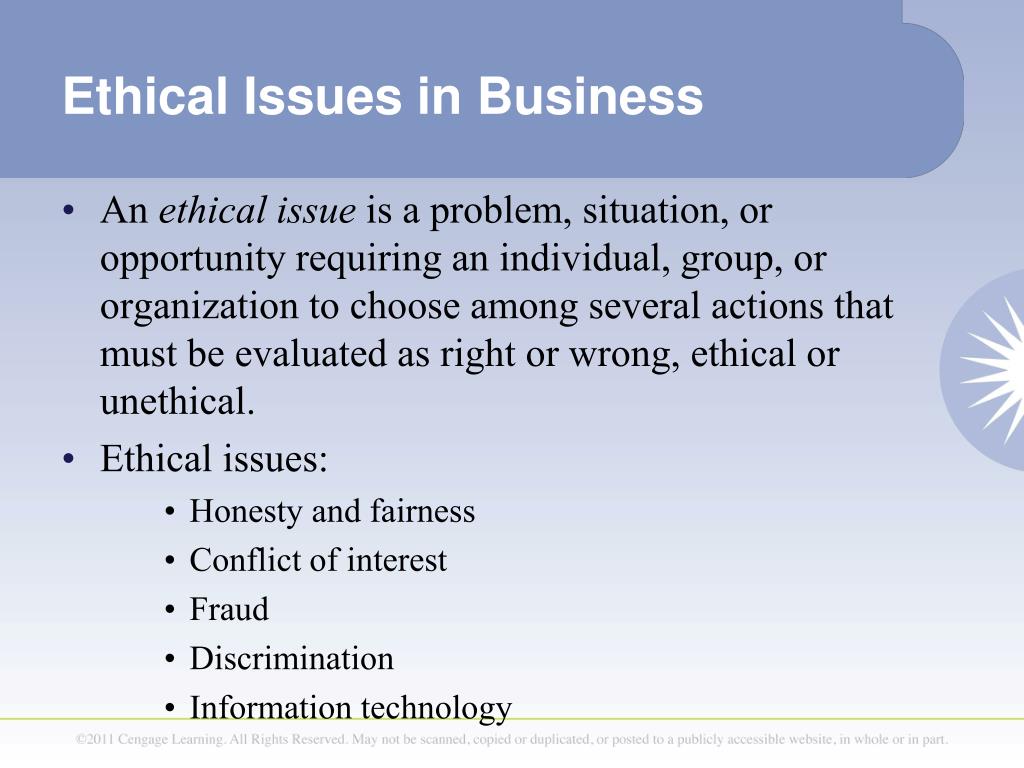Ethical Issues In Business A Philosophical Approach

Imagine a bustling marketplace, filled with vendors hawking their wares. The air buzzes with the promise of a good deal, a needed service, a better life. But beneath the surface of this vibrant commerce, whispers of difficult choices linger. Are the prices fair? Are the products safe? Is everyone playing by the same rules? These questions, often unspoken, touch upon the heart of ethical issues in business.
At its core, this article explores the philosophical underpinnings of ethical conduct in the business world. It delves into why ethical considerations are crucial for long-term success and societal well-being, examining how philosophical frameworks can guide decision-making in the face of complex moral dilemmas.
The Philosophical Roots of Business Ethics
The field of business ethics isn't new. Philosophers have grappled with questions of fairness, justice, and responsibility for centuries. Utilitarianism, championed by thinkers like John Stuart Mill, advocates for actions that maximize overall happiness and well-being. In a business context, this might mean making decisions that benefit the greatest number of stakeholders, even if it means some individuals experience negative consequences.
However, the utilitarian approach isn't without its critics. Deontology, a philosophy associated with Immanuel Kant, emphasizes duty and adherence to moral principles, regardless of the consequences. Kant believed that certain actions are inherently right or wrong, and that businesses have a duty to act according to these principles, such as honesty and respect for individuals, even if it doesn't lead to the most profitable outcome.
Another influential perspective is virtue ethics, which focuses on cultivating moral character traits. Developed by Aristotle, this philosophy emphasizes the importance of developing virtues like integrity, courage, and compassion. A business guided by virtue ethics strives to foster a culture where employees are encouraged to act virtuously and make ethical decisions based on their character.
Ethical Challenges in the Modern Business World
The application of these philosophical frameworks in the modern business world is often complicated. Globalization, technological advancements, and increased competition have created new ethical dilemmas that require careful consideration. Supply chain transparency, data privacy, and environmental sustainability are just a few of the challenges businesses face today.
Consider the fashion industry, where fast fashion practices often prioritize profit over ethical sourcing and labor standards. Utilitarianism might justify these practices if they provide affordable clothing to a large number of consumers, but deontology would condemn them if they violate workers' rights or environmental regulations.
The Rise of ESG and Corporate Social Responsibility
In recent years, there has been a growing emphasis on Environmental, Social, and Governance (ESG) factors in business. Investors, consumers, and employees are increasingly demanding that companies demonstrate a commitment to ethical and sustainable practices. This shift reflects a growing recognition that businesses have a responsibility to contribute to the well-being of society and the planet.
Companies are now being evaluated not only on their financial performance but also on their ESG performance. This includes factors such as carbon emissions, diversity and inclusion, and ethical governance practices. Organizations like the Global Reporting Initiative (GRI) provide frameworks for companies to measure and report on their ESG performance.
"Corporate social responsibility is not just a trend; it's a fundamental shift in the way businesses operate," says Professor Eleanor Vance, a leading expert in business ethics. "Companies that prioritize ethical conduct and sustainability are more likely to build trust with stakeholders and achieve long-term success."
The Importance of Ethical Leadership
Ultimately, the ethical tone of a business starts at the top. Ethical leadership is essential for creating a culture of integrity and accountability. Leaders who demonstrate a commitment to ethical principles are more likely to inspire their employees to do the same.
This involves setting clear ethical standards, providing ethical training, and creating mechanisms for reporting and addressing ethical concerns. It also means holding individuals accountable for their actions, regardless of their position within the company. When leaders prioritize ethical conduct, they send a powerful message that ethics is not just a slogan but a core value.
The journey towards ethical business practices is an ongoing process. It requires continuous reflection, learning, and adaptation. But by embracing philosophical principles and prioritizing ethical conduct, businesses can create a more just and sustainable world for all.


















